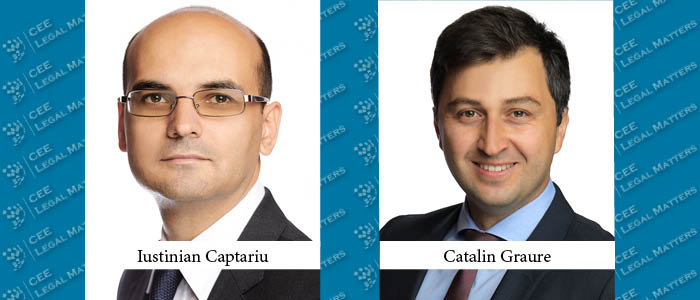Further to the December 2023 amendments to the Romanian regime for screening inbound direct investments (that we previously covered here), which formally included EU investors within the scope of screening, the Romanian Parliament has adopted a new law (the “New Law”) to further strengthen the approach towards EU investors.
The New Law explicitly extends to EU investors the sanctions regime previously applicable to non-EU investors. Gun jumping will be treated in the same manner regardless of the investor’s nationality, with potential sanctions of up to 10% of worldwide turnover applicable to EU and non-EU investors alike. This was not an oversight in the December 2023 amendments, but rather the government’s preferred approach for grounds related to the legislative process in Romania.
The New Law adopted by Parliament is currently with the President of Romania, awaiting promulgation and entry into force shortly.
Background to Romania’s FDI screening regime
In April 2022, in the wake of the EU FDI Screening Regulation, Romania overhauled its previous FDI screening regime applicable as of 2012. The new screening regime also led to the creation of the FDI Screening Commission (“CEISD”), a new government body tasked with the screening of notified investments, while the formal issuance of the clearance decisions was entrusted to the Romanian Competition Council (“RCC”) based on an opinion issued by the CEISD. The Romanian Government would only get directly involved in the event of conditional or prohibition decisions and issue Government decisions in this respect.
While the broadly defined sensitive sectors triggering screening remained the same as in the 2012 rules, the new regime introduced severe fines for gun jumping, which has led to a surge in filings during the past two years and put Romania on the list of jurisdictions likely to trigger FDI filings in the case of multi-jurisdictional deals with a Romanian nexus.
In 2023, the RCC issued 105 FDI clearance decisions compared to only 74 merger clearances during the same period, while the 2024 figures are likely to register a double-digit increase based on the RCC’s workload to date.
Despite the changes and the rather extensive scope of screening, Romania remains an investor-friendly jurisdiction, with reasonably short clearance timelines (generally around two months for non-problematic filings) and very few transactions leading to particular scrutiny from the authorities thus far. One notable example in this respect is the first conditional clearance approved by means of a Government decision earlier this year, which notes that the investor’s compliance with the commitments is to be reviewed at least quarterly by the duly entrusted public authorities and institutions.
Other noteworthy changes brought by the New Law
Other amendments worth mentioning introduced by the New Law, which also amends the Romanian Competition Law and the Romanian FDI Law, include:
- with respect to the sanctions regime, in addition to explicitly extending fines to EU investors, the New Law also provides that:
- fines can also be imposed for negligently providing incorrect, incomplete or misleading information in the FDI filing form and not only wilfully, as in the previous version of the law;
- failing to fully and correctly provide all additional information necessary for screening, generally following requests for information from the CEISD, is also expressly now subject to fines; and
- it is further clarified that CEISD would analyse cases triggering fines and forward its conclusions to the RCC for adoption of the sanctioning decisions.
- the RCC is granted more scope to clarify and fine tune aspects on the conditions, timeline and procedure for screening investments via secondary legislation, compared to the previous iteration of the law, which only entrusted the RCC with adopting guidelines on how to determine the value of investments subject to screening (given the EUR 2 million de minimis investment value threshold in the FDI law);
- for investments affecting national security or public order that were implemented without obtaining clearance, it is further clarified that the opinion to be issued by the CEISD on the matter would also include any adequate structural or behavioural measures suggested to be adopted by the Government in view of unwinding the investment/re-establishing the previously existing situation;
- it is also expressly provided that all agreements and contractual arrangements for carrying out a notifiable investment, where such investment was not duly filed for FDI clearance, are null and void;
- for investments triggering both an FDI and a merger filing in Romania, the issuance of the merger clearance will no longer be subject to first obtaining the FDI clearance, as was previously the case;
- changes fostering client-attorney privilege during inspections – the Romanian Competition Law was amended in December 2023 enabling RCC inspectors to read and copy client-attorney correspondence if they disagreed with the arguments brought by the inspected undertaking that such correspondence was privileged. This amendment led to heated debate and criticisms particularly from local competition lawyers for obvious reasons, and the matter now appears to be at least partially addressed by the New Law.
In this regard, the New Law provides that the inspected undertaking is no longer required to disclose the content of correspondence claimed to be privileged, and where the inspectors cannot reach a clear conclusion as to the privileged nature of the correspondence, such documents are to be sealed and the matter further decided by the RCC President, as per the previously applicable rules.
By Iustinian Captariu, Partner, and Catalin Graure, Senior Associate, Kinstellar


